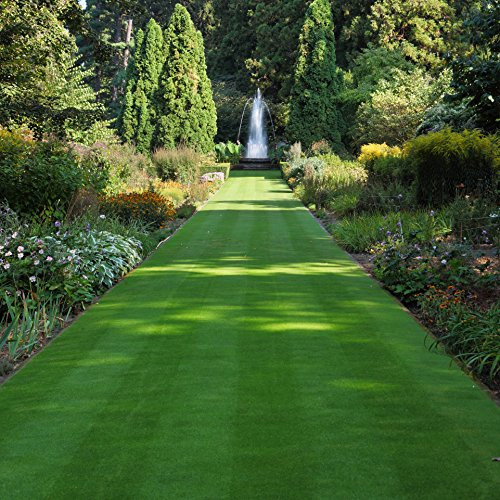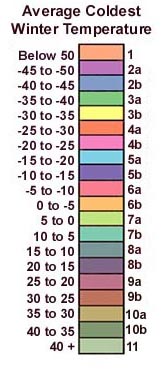
Legacy Fine Fescue
- Close-Mowing
- Lawns
- Resilient
Grasses used in Illinois are typically cool season grasses. Kentucky bluegrass, fine fescue, and perennial ryegrass are the most common with turf type fescue being used at the more southern portion of Illinois. Some people are using warm season grasses such as zoysia grass in Southern Illinois as well.
Cool-Season Grasses:
Kentucky bluegrass is by far the most popular species used in home lawns in northern Illinois, due to high quality appearance, hardiness, and recovery ability. Kentucky bluegrass spreads by rhizomes. Most cultivars of Kentucky bluegrass require moderate to high levels of maintenance (such as fertilizing, watering, etc.) to maintain high quality. Kentucky bluegrass prefers full sun, although a few cultivars have tolerance to light shade. Kentucky bluegrass is slow to establish by seed, and is also readily available as sod.
Fine fescues require less maintenance and many adapt to shade. The fine fescues include red and chewings fescues, sheep fescue, and hard fescue. Leaf width is narrow, and most are bunch-type grasses (red fescue has rhizomes). Wear tolerance (such as foot traffic) and recovery ability of fine fescues is fair. Maintenance levels are generally low, especially fertilizer needs, and fine fescues may decline in full sun when mowed frequently.
| Click Name To View Grass Seed Choice | Type | Applications | |
|---|---|---|---|
| Cool Season Mix - Showtime |
|
Cool Season |
Lawns - Full Sun to Moderate Shade Rye, Kentucky Bluegrass, Fine Fescue Mix |
| Cool Season Mix - Garland |
|
Cool Season |
Lawns - Full Sun to Moderate Shade Rye, Fine Fescue Mix |
| Fescue/Bluegrass Mix - Combat Extreme North |
|
Cool Season | Lawns - Wear Tolerant |
| Fescue Blend - Combat Extreme Transition |
|
Cool Season | Lawns - Wear Tolerant |
| Fine Fescue Blend - Legacy |
|
Cool Season | Lawns - Full Sun To Moderate Shade |
| Kentucky Bluegrass - Bluegrass Supreme |
|
Cool Season | Lawns - Golf Gourses - Full Sun |
| Kentucky Bluegrass - Midnight |
|
Cool Season | Lawns - Golf Courses - Full Sun |
| OSP Ryegrass |
|
Cool Season | Lawns - Golf Courses |
| Shade Grass - Poa Supina Mix |
|
Cool Season | Lawns - Full Sun - Deep Shade - Best Shade Grass |

Perennial ryegrasses are bunching cool season grasses that are compatible in appearance with bluegrass, do not form thatch, have good heat tolerance and may be drought resistant. They tend to be disease prone and offer poor freezing tolerance if flooded or exposed to wind. Perennial ryegrasses is designed for full sun areas, but will tolerate some shade. Ryegrass is bred to give a pleasing dark green color, with a fine texture and excellent mowing qualities. Is also a very good choice for blends with Kentucky Bluegrass and Fine Fescue.
Tall Fescue - The new turf-type tall fescues are excellent for warmer areas of Illinois and the southern area. While they take a little while to establish or recuperate since they are a clump-type grass, they are extremely wear resistant, drought, heat, and salt-tolerant; and moderately shade tolerant. Tall fescues have few disease problems and require less maintenance that other grasses. Kentucky bluegrass is the first grass to brown out in the summer and tall fescue is the last.
Below is the USDA Zone Map for Illinois so you can determine which zone you reside in. Below that are our picks for your state which will do best in your area. Next on this page are tables which list various grasses and their characteristics so you can compare before you decide on your purchase. Click on the product name (ie. Midnight) for more information about that grass and to make your purchase.
| USDA Zone Map For Illinois | |
|---|---|
 |
 |
| Compare Various Grasses For Their Characteristics | ||||||||
|---|---|---|---|---|---|---|---|---|
| Cool Season Grasses |
Leaf Texture |
Establish Rate |
Nitrogen Use |
Water Use |
Drought Tolerance |
Salinity Tolerance |
Shade Tolerance |
|
| Bentgrass - Creeping | Fine | Moderate to Fast |
Low to Moderate |
High | Poor to Moderate |
High | Poor to Moderate |
|
| Bentgrass - Colonial | Fine | Moderate to Fast |
Low | Moderate | Poor to Moderate |
Moderate | Moderate | |
| Bluegrass - Kentucky | Moderate to Fine |
Slow | Moderate to High |
Moderate to High |
Good | Moderate | Poor | |
| Bluegrass - Rough | Moderate to Fine |
Slow | Moderate to High |
Moderate to High |
Poor | Moderate | Excellent | |
| Fescue - Hard | Fine | Slow to Moderate |
Low to Very Low |
Moderate | Excellent | Low to Moderate |
Excellent | |
| Fescue - Creeping | Fine | Moderate | Low to Moderate |
Moderate | Good | Low | Excellent | |
| Fescue - Turf Type | Moderate to Coarse |
Moderate | Moderate to High |
Low to Moderate |
Excellent | Low | Good to Excellent |
|
| Ryegrass - Perennial | Fine to Moderate |
Very Fast | Moderate to High |
Moderate to High |
Good | Poor to Moderate |
Poor to Moderate |
|
| Compare Various Grasses For Their Characteristics - Continued | ||||||||
|---|---|---|---|---|---|---|---|---|
| Cool Season Grasses |
Fertility Needs |
Wear Resistance |
Mowing Height |
Cold Tolerance |
Acid Soil Tolerance |
Thatching Tendency |
Heat Tolerance |
|
| Bentgrass - Creeping | High | Low | Low | Low | Medium to High |
High | High | |
| Bentgrass - Colonial | High | Low | Low | Low | Medium to High |
High | High | |
| Bluegrass - Kentucky | Medium | Medium to High |
Medium | High | Medium | Medium | Medium | |
| Bluegrass - Rough | Medium | Medium | Medium | High | Medium | Medium | Medium | |
| Fescue - Hard | Low | Low | Medium | Medium to High |
Medium to High |
Low to Medium |
Low to Medium |
|
| Fescue - Creeping | Low | Low | Medium | High | Medium to High |
Low to Medium |
Low to Medium |
|
| Ryegrass - Perennial | Medium | High | Low to Medium |
Medium | Medium | Low | Medium to High |
|